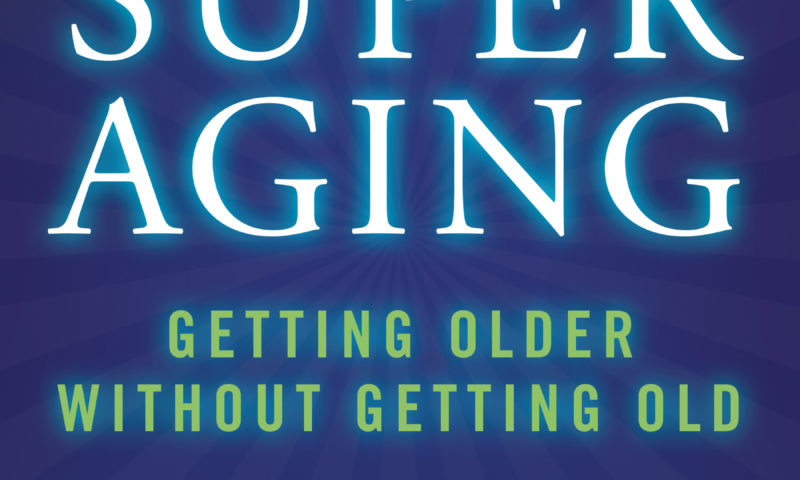By David Cravitt and Larry Wolf
Let’s consider the phrase itself: “The best years of your life.” It sounds nice, but are they really?
Not in the past. Life after 65 was (a) short and (b) often painful. You didn’t have much time left – maybe 10 to 12 years or so – and the best you could hope for was to be relatively free from illness and pain and debilitating decline. “Best years of your life,” indeed.
But today, a 65-year-old can reasonably aspire to another 20 or 30 years – maybe more. In fact, the fastest-growing age group, in percentage terms, is the centenarian.
Welcome to the Super Aging revolution.
We didn’t coin the term, but we’ve embraced it as the perfect way to describe the new reality: Now you have plenty of time to make new plans, learn new things, explore, achieve, be fulfilled in exciting new ways.
You can get older without getting old. Okay, but how?
We came at this from a layman’s point of view, from the perspective of people who are actually doing the aging. We surveyed the current wisdom, talked to the experts, and tried to act as our readers’ eyes and ears, navigating the crowded and often confusing information landscape to arrive at a concrete, actional blueprint for making Super Aging a reality. We identified seven key pillars:
Attitude.
People with a positive attitude live longer. But it goes beyond just a vague, feel-good notion of optimism in general. It’s anchored to a concrete vision of what you want to do. Can you make yourself optimistic? Can you create such a vision? Yes.
Awareness.
When it comes to longevity, so many new things are happening so quickly that there’s a lot more to know and a lot more to keep up with. Super Agers are active seekers and consumers of information on topics from health to finance to tech to “reinvention.” This requires a systematic approach.
Activity.
This applies to diet and fitness (including brain health). You have to be a proactive manager of your own health and wellness. In particular, there area some important new methods and ideas to know about.
Accomplishment.
It may be a refusal to retire “on schedule” at 65; it may be semi-retirement; it may be coming back out of retirement, or having a side gig, or staying active through volunteer work. The Super Aging years can, and should, be years of achievement. Did you know there are coaches that can help?
Autonomy.
Super Agers want to be independent, and a sense of independence definitely contributes to duration and quality of life. Autonomy includes physical independence (aging in place) and financial independence (a challenging issue since you’ll need funds to cover a much longer lifespan).
Attachment.
Research demonstrates conclusively that isolation and loneliness exert a seriously harmful effect on health. While everone wants to maintain strong existing relationships, Super Agers are more likely to reach out for more – for example, to go beyond their immediate networks and create digital connections.
Avoidance.
Negative influences must be resisted. These include frauds and scams, ageism in the marketplace, and obsolete advisors (possibly even your doctor) who, with the best intentions, don’t understand the new realities of Super Aging.
Can you be a SuperAger? It’s more possible than ever before. Through our book and its companion website, SuperAging.info, hopefully we can help.
David Cravit and Larry Wolf are co-authors of “Superaging: Getting Older Without Getting Old.” They work in the media and marketing industries.
